Personality can be defined as a collection of traits which are unique to an individual. A personality is therefore like a psychological fingerprint, because everyone’s personality is slightly different.
With personalities we can somewhat predict the type of behavior someone is likely to display. For example, if a person is outgoing and likes to seek attention, then there is a good chance that they will get on well with other people and have lots of friends.
These individual aspects of a person’s personality are called traits, and are largely what is responsible for the type of personality which others will perceive you to have.
In addition to this, the “ego” (your conscious self, “I”), is also an important aspect of your personality, as is “the self”, which is how you view your own personality from within and how you experience it to be. This is something we shall cover in more detail later on.
Personalities are like looks
Personalities are a lot like looks (our physical appearance) when it comes to interacting with other people. There are some people whose personality we like and get on with, just as there are personalities we dislike and do not get on with.

Generally, whether or not we think we like someone is initially based on our physical perception of them (what they look like to us), simply because this is the first type of information (sensory visual) that our brain receives.
It’s only after communicating with that person for a certain period of time that we start to learn about what type of personality they have. At this point, there are four basic things that can happen:
• We like the look of them and like their personality.
• We don’t like the look of them but like their personality.
• We like the look of them but don’t like their personality.
• We don’t like the look of them and dislike their personality.
So as you can see, the study of personality is an extremely important aspect of social interaction because it can either positively enhance an interaction or negative repel it.
In this article, we shall be looking at the different aspects of personality in detail, and examine some of the classical psychological theories that have been used in an attempt to better understand what a personality is and why it may be that way.
Personality Traits
If you think about the people you know in your life, you have probably mentally classified certain types of people as being friendly, happy, boring, angry, brave, cowardly etc…
All of these are traits of a personality (the individual aspects that make up a personality), and the reason that certain traits stick out in your mind for a certain person (i.e. are salient), is because they tend to display a particular trait most often.
This therefore, naturally leads us to generalize a person’s whole personality based on a particular trait, even if that generalization is entirely incorrect.

For example, if someone you know doesn’t speak very much, then you may classify them as being somewhat of an anti-social person and so you do not make much effort to get to know them.
However, suppose that later you see this person with their friends and they appear very talkative and energetic. Now you see this person in a completely different light, which causes you to change how you view their personality.

This tendency to generalize personalities is an important one to remember, because unless you make a conscious effort to project your true personality, people are likely to label you with a personality that may be entirely incorrect from you who really are.
In some cases, this may work in your favor where people attribute positive personality traits to you. But in most cases, the reverse will happen, and you will be labelled with a negative personality trait. This can then cause people to see you in a negative light and so they will treat you accordingly.
Classical theories of personality
Now that you have a better understanding of what a personality is and the components it is made up of, below we shall look at several classical theories of personality in psychology. When reading these theories, it’s important to note that psychology has progressed considerably since these theories were first developed.
As a result, not all of these theories are currently accepted in the modern-day psychology community, but they still can be useful to know about as all new theories tend to build and expand upon the theories which came before it. So lets start with one of the oldest theories of personality, that proposed by Hippocrates.
Hippocrates (humors)
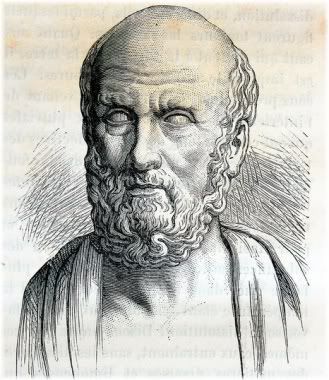
One of the earliest type-trait personality theories was the one proposed by Hippocrates, an ancient Greek doctor, who is regarded by most as the “father” of medicine.
According to Hippocrates, there are four personality types:
• Sanguine (Optimism)
• Choleric (Irritability)
• Melancholic (Depression)
• Phlegmatic (Sluggishness)
Hippocrates believed that a person’s personality is influenced by the balance of fluids (humors) in the body as shown below.
Optimism
A person with a sanguine personality (optimism), would have a lot of the humor blood.
Irritability
A person with a choleric personality (irritability), would have a lot of the humor yellow bile.
Depression
A person with a melancholic personality (depression), would have a lot of the humor black bile.
Sluggishness
A person with a phlegmatic personality (sluggishness), would have a lot of the humor phlegm.
Modern Day Relevance
Although Hippocrates humor theory of personality is not something we use today, it does show just how far back people have attempted to explain the different personalities of the people they see around them. However, whilst Hippocrates may have been incorrect about fluids influencing our personality, there is some degree of validity to this theory.
We now know today that hormones circulating in the blood can drastically affect the type of personality someone displays. Testosterone is an obvious example of this, and can cause a person to become aggressive or submissive depending on its relative levels within the body.
William H. Sheldon (body type)
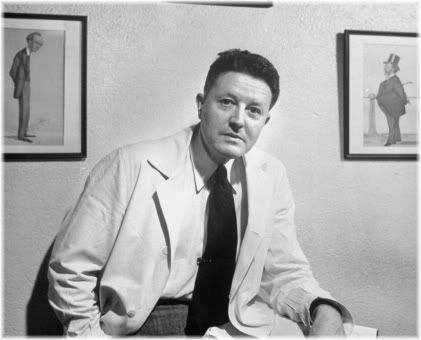
Another classical theory of personality, although this time a much more recent one, is the theory of personality proposed by the physiologist William H. Sheldon around 65 years ago. Basically, Sheldon said that our personality is related to our body type which is largely predetermined during embryonic development.
As a result, he said that there were three basic body types which each had a distinct personality.
Endomorph
An endomorph has a soft and flabby body, and their personality is likely to be one of laziness and pleasure-seeking.
Mesomorph
A mesomorph has a firm and muscular body, and their personality is likely to be assertive and ambitious.
Ectomorph
An ectomorph has a thin and frail body, and their personality is likely to be shy and nervous.
Somatotypes
Sheldon did not think that people were purely one type or another, and as a result, he rated people based on each of these three body types and then gave them a somatotype. A somatotype is simply an individual’s dominant body type (what they are most like).
Modern day relevance
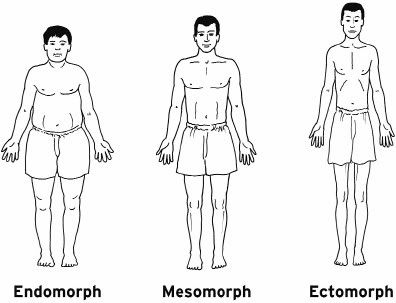
Today, Sheldon’s theory of body type personality is not something we use anymore. But just like with Hippocrates’ theory, there may be some element of truth to it if we generalize body types and personalities.
For example, we could generalize by saying that fat people are lazy because they spend most of the day sitting or lying down. They also like to seek pleasure, because they are unable to control how much food they put in their mouth.
Muscular people could be generalized by saying that they are assertive and ambitious because their bodily appearance gives them the confidence to act this way.
Thin and frail people could be generalized by saying that they are shy and nervous because they feel physically vulnerable and weak.
Although these are generalizations, it is fair to say that a person’s body type does play a role in determining the type of personality which they are likely to display. The reasons for this are two-fold:
1) Mental
If you are muscular, then you are likely to feel a lot more confident with yourself than a fat person would about their body. This can then influence your overall personality.
In addition to this, how you think other people perceive your body to be (i.e. attractive or unattractive) can also affect how you feel about yourself and therefore your personality.
2) Biological
If you have a muscular body type, then you are likely to eat healthy foods and exercise, both of which can produce distinct hormonal patterns in the body which will affect how you feel.
A fat person may feel lazy because they do not exercise and eat junk food, and as a result, have a very different hormonal pattern. One that is likely to lead to fluctuating moods, lack of energy and depression.
You can’t generalize everyone
All of the examples given above are generalizations. This is why Sheldon’s theory is not used today, despite there being some evidence to support his views.
Not all fat people for example, are lazy, just as not all muscular people are confident. So as with any theory, it is best to take what works and then use it to develop other theories which explain what it could not.
Carl Jung (introvert/extrovert)
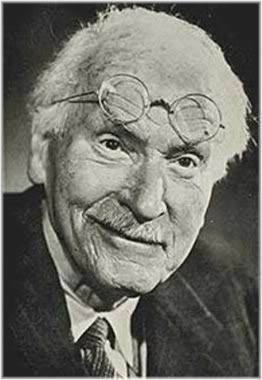
One of the most famous type-trait theories of personality is the theory proposed by Carl Jung, a Swiss psychiatrist who used to work with Sigmund Freud.
Jung said that there were two main types of personality, the introvert and the extrovert.
Introvert (inside)

An introvert is a person who likes to spend the majority of their time by themselves, or away from large groups of people. Although, it should be noted that being an introvert doesn’t necessarily imply that person is a social recluse, but rather, that they prefer less company over more.
Introverts like to take their time when working things out, and usually do so on paper or in their head. As a result, they don’t like to be rushed when making decisions.
These types of people tend to be good at thinking about things, writing, researching and meditating. So basically, any sort of activity which involves them working alone and which is predominantly mentally based.
Most psychologists and influential thinkers are naturally introverted people, as they are able to deeply analyze things and come up with explanations for them. Jung called these tendencies of the introvert a “flow of libido toward the inner world“.
Note: Jung’s use of the term “libido” differs from Freud’s usage, as Jung meant it to mean psychological energy.
Extrovert (outside)

The extrovert personality type is the complete opposite to the introvert, as extroverts like to spend most of their time in the company of others and enjoy being the center of attention.
When they try to work out how to solve a problem, they usually do so by actively getting involved in it rather than sitting down and trying to figure it out in their head.
An extrovert tends to be good at making friends, talking, travelling to different places and sport. As a result, extroverts tend to make good leaders, because they are good at communicating to and interacting with large groups of people.
Extraversion is characterized by a “flow of libido toward the outer world“.
Ambivert (mixture)

Although Jung believed that whether we become an introvert or an extrovert is largely predetermined at birth, he recognized that people may display multiple traits. A person who displays a mixture of introverted and extroverted behaviors is what Jung called an “ambivert”.
So whilst most of us tend to display a dominant trait (introvert or extrovert), it is likely that we all display a bipolar trait (opposite trait) under different circumstances.
Using yourself as an example, you most likely display extroverted behaviors when in the company of people who you know and feel comfortable with. When in the company of strangers however, you are much more likely to display introverted behavior.
Raymond Cattell (16 personality factor theory)
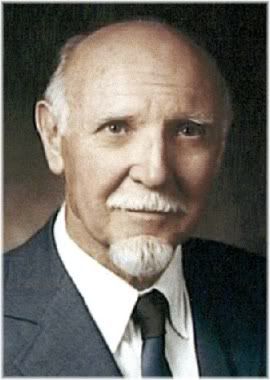
Another type-trait theory is the sixteen personality factor theory. This theory was created by the researcher Raymond B. Cattell, based upon his analysis of various personality tests. As a result of this analysis, he concluded that there were sixteen factors which could be used to test and describe a person’s personality.
These factors are bipolar traits, because there are two oppositional traits which are related to each other. Some of these include:
Reserved-Outgoing
This bipolar trait is similar to Jung’s introversion-extroversion. A person with a reserved trait tends to focus on their inner mental world, whilst a person with an outgoing trait tends to focus on their outside world.
Affected by feelings-Emotionally stable
A person who is affected by feelings tends to be sensitive to the criticism of other people. As a result, they tend to have very unstable and fluctuating moods and so can slip into a depression easily.
An emotionally stable person will rarely feel very angry or very sad, or display extreme outbursts of emotion. They are also not greatly affected by the criticisms of other people.
Humble-Assertive
A person who has a trait of being humble tends not to like confrontation, goes along with what other people want them to do and lacks self-confidence.
A person with an assertive trait tends to stand up for the things they want and believe in, even if other people disagree with them. This makes them good leaders, as they are able to influence other people and have a large amount of self belief.
Sigmund Freud (the unconscious)
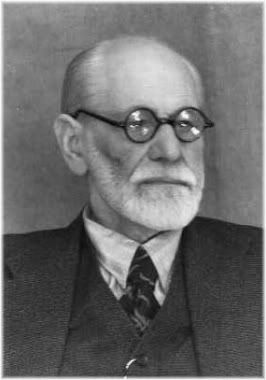
Sigmund Freud’s personality theory attempts to explain the processes involved in the expression and shaping of a personality. It consists of three parts: the id, the ego and the superego.
The Id (the it)

The id is defined as the psychological expression of biological drives such as hunger and thirst. The id is present at birth (inborn), and is more or less the same in all of us. Therefore, whilst the id is part of our personality, it does not make our personality unique.
According to Freud, the id is first present in infants where it expresses itself by following the “pleasure principle”. This basically means that the id will cause the infant to satisfy its basic biological drives, such as the need for water to relieve thirst or the need for sleep to relieve tiredness.
The id continues to stay with us throughout our entire life, causing us to continual satisfy our biological drives. We could therefore summarize the id (the it) by saying that it is a non unique part of our personality which helps to keep us alive.
All that it is interested in is making us fulfil our biological drives, regardless of how inappropriate or appropriate such behavior would be.
The Ego (I)

The ego is something that develops as a result of the experiences you have in life and the challenges and frustrations you face in it. The ego develops in order to cope with the world as it is, not as you wish it to be.
As a result, the ego is said to follow the “reality principle” because it allows us to deal with our current situation, whilst at the same time preventing us from acting out on any inappropriate urges we may have from the id.
The ego is said to start developing from ages 2-3, and will continue to remain part of our personality throughout our entire life.
We can summarize the ego by saying that it acts as a control mechanism, preventing us from being a slave to our id which is only interested in making us satisfy our biological needs regardless of how inappropriate that may be.
For example, if you see an attractive person, your id may tell you to go and have sex with them right now. But your ego would say that this is inappropriate behavior, because you are in public and so you should find a way to do this later (the ego provides a sensible solution to a problem).
The Superego (over the I)

The superego develops as a result of the values which we acquire from family and society. If we accept these values, the superego is said to become “introjected” which means that it becomes an integral part of our personality.
Part of the superego is the conscience, and this makes us feel guilt when we do something that goes against the demands of the superego. The superego is therefore like our moral guide, causing us to conform to the social values we have accepted from society. If we do something to break those values, our conscience makes us feel guilty.
The superego is said to be well established around age seven.
Ego Ideal

The ego ideal is another part of the superego, and is involved in determining what we feel that we should do with our life and what responsibilities we should take on. As the ego ideal is part of the superego, it usually reflects what our parents want us to do.
We can summarize the ego ideal by saying that it reflects the wishes of our parents for what we should do with our life.
Ego Defense Mechanisms
One of the key concepts of Freud’s personality theory is existence of ego defense mechanisms. These unconscious processes act like a shield, and protect our ego from being damaged by emotionally painful events so that we can still function and deal with reality.
There are seven different types of ego defense mechanisms that are used to protect the ego:
1) Denial of Reality

Denial of reality is most common amongst young children, although it still occurs in adults. Basically, it involves denying the true reality of a situation and believing in what you want to believe in without this belief being based on any facts.
For example, if you are diagnosed with a certain disease, then you may choose not to believe you are ill but that something else is wrong instead. Or, you might simply believe that you are not ill at all.
2) Repression

Repression occurs when the ego experiences some unpleasant event that is linked to an unpleasant emotion.
To protect itself, the ego represses these unpleasant feelings and events to an unconscious level. For example, if you have had a troubled childhood or a very painful breakup, these are things which could be repressed to the unconscious mind.
Freud also believed that certain sexual desires become repressed, as was detailed in his psychosexual theory of development.
3) Projection

Projection occurs when what you think is happening to someone else, is really happening to you at an unconscious level. In other words, you are reflecting your unconscious on to another person. So in effect, you are really looking at yourself.
For example, if you say to someone that they must be very jealous of another person’s success, then it is likely that you are the jealous person.
However, because your ego does not want to confront these feelings (i.e. you being jealous at another person’s success), you project that jealously on to another person from your unconscious mind.
4) Identification

Identification occurs when the ego identifies itself with desirable attributes. These are usually attributes of another person, such as power, status or some special talent. For example, if you saw an inspirational movie, then your ego may identify with certain characters causing you to believe that you are like them in some way.
5) Fantasy

Fantasy occurs when the ego imagines having something which is not obtainable in normal day-to-day living.
For example, if you spend most of the day dreaming that you are in another world, then this would be a form of fantasy. This fantasy serves to protect the ego from some painful or uncomfortable emotion it does not want to confront (i.e. the true reality of a situation).
6) Rationalization

Rationalization is a process in which the ego provides a rational sounding explanation for a failure. For example, you did not succeed at something you set out to do, and so you blame it on bad luck rather than your own lack of preparation.
Rationalizations are usually not based on any facts, although the way they are presented makes them seem like logical explanations.
7) Reaction Formation
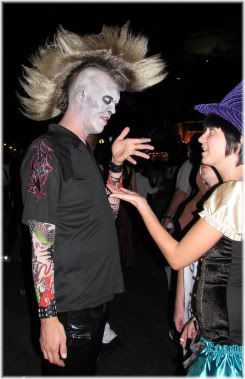
Reaction formations occur as a way of blocking an unconscious desire from manifesting itself at a conscious level. An example of this could include a person who deliberately acts hostile towards another person in an effort to repress a forbidden sexual desire they may have.
At an unconscious level they may want to have sexual relations with a member of their family (such as a distant cousin), but because this is socially unacceptable, it is repressed at an unconscious level.
In order to prevent them from acting out this forbidden desire, they will be hostile towards their cousin so that they do not form a friendship or become close. As long as they are not close, their forbidden sexual desire will remain repressed in the unconscious mind.
If this person were to become drunk, or be under the influence of a drug, then this reaction formation may break down causing them to “act out” their forbidden desire (i.e. make a pass at their cousin).
Ego defense from reality
All of the ego defense mechanisms have one thing in common. They protect the ego from the true reality of a situation, because that reality is either too painful or uncomfortable for it to deal with.
As a result, rather than dealing with what is actually happening, people have a natural tendency to delude themselves because this delusion makes them feel good as opposed to feeling bad when thinking about real reality.
The trouble with not wanting to confront reality is that it can often make situations worse because you then don’t take effective action to remedy the situation.

So even though denying reality may make a person feel good in the present moment, it is likely that later on they will experience greater pain than if they had chosen to confront their true reality when they were able to.
It is also worth noting that all of these ego defence mechanisms can overlap with each other. For example, identification may overlap with fantasy or rationalization may overlap with a reaction formation.
So if you are trying to identify these ego defense mechanisms within yourself, bear in mind that multiple defense mechanism could be at work.
Neo-Freudians
Freud’s approach to studying personality uses the psychodynamic theory, which makes the assumption that a person’s personality is essentially a field of forces that are sometimes in opposition.
A good example of this can be found with the id and the superego. Whilst the id may want a person to do something, the superego may act in opposition by saying not to do something because it is not right.
There is also the concept of the ego defence mechanisms which fill the unconscious mind with all the forbidden desires we have and the painful things we don’t want to confront about our lives.

Despite Freud’s personality theory being a highly influential one, there are some theorists who agree with some of the points that Freud makes but disagree with others. These theorists are called “neo-Freudians” which literally means “new Freud’s”.
Two of the most well-known neo-Freudians are Carl Jung and Alfred Adler.
Carl Jung (collective unconscious)

Carl Jung was a Swiss psychiatrist who spent some of his early days working with Freud. Jung agreed with Freud about the idea of an unconscious mind, but felt that Freud’s view of it was rather limited.
Instead of just one unconscious mind that resided within a person, Jung believed that there was a “collective unconscious” which consisted of all the experiences humans have had since the human race began.
These stored experiences, or archetypes (early patterns) as he called them, were similar to the concept of instincts in animals. These archetypes are inborn, and as a result, influence much of our behavior.
Note: In Jungian theory, archetypes are always capitalized.
The Hero

An example of an archetype given by Jung is the Hero. If someone identifies their ego with the Hero, then they will tend to be courageous, seek adventure and be concerned for the well-being and safety of others who they feel it is their duty to protect.
The Martyr

Another example of an archetype is the Martyr. If a person identifies their ego with the Martyr, then they will tend to be self-sacrificing and put the opportunities of others ahead of their own. This can make them vulnerable to being taken advantage of or being abused by others.
The Self

One of the most important archetypes given by Jung was the Self. If a person identifies their ego with the Self, then they are likely to take a path of self discovery so that they can better understand themselves and the world they live in. As a result, they will feel as though their life has purpose and a sense of direction.
If this journey is successful, then at the end of their life they will feel fulfilled, like they have achieved what they set out to do. Jung called this process self-realization, and is similar to Maslow’s concept of self-actualization.
Modern day acceptance
Jung’s theory of the collective unconscious is accepted by some, and rejected by others. So it is considered to be quite a controversial theory.
However, there may be some truth to what Jung says, as some people believe that information is passed on to us from previous generations via our DNA in the form of “genetic memories”. So the experiences our ancestors had, could, in theory, affect us now via the DNA they passed on to us.

There is also the phenomenon of “group think” or “herd mentally”, something which is observed in both animals and humans.
In brief, group think describes how when a certain percentage of a group behave in a certain way, there is a natural tendency for the rest of the group to also behave in the same way. This is why it is called a herd mentally, because groups of people very often act like a herd of sheep or cows.
Why this occurs is not exactly known, but there may be some sort of “extended mind” which connects us all thereby causing a seemingly random group of individuals to suddenly starting behaving in the same way.
This idea of the extended mind is something which has been explored by Rupert Sheldrake, who believes that the mind is not solely confined to the brain. So the idea of the mind being non local, or even extending back in to time, should not immediately be discounted.
Alfred Adler (will to power)
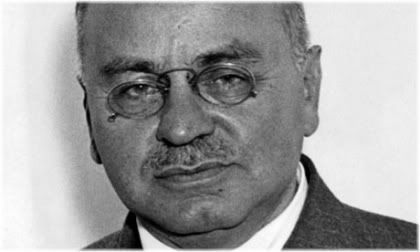
Alfred Adler, like Jung, worked with Freud during the early stages of his career, but later created his own theories which differed slightly from those of Freud’s.
One of the main things which caused Adler to split from Freud, was his belief that the “will to power” was just as important in the psychological development of a person as is the sexual drive.
The will to power is what Adler saw as an inborn drive we all have to perform things to the best of our ability and to achieve success in life. This is a concept he obtained from the teachings of the philosopher Friedrich Nietzsche.
Inferiority complex
If a person feels that they are unable to achieve their highest potential, then this can create an inferiority complex within them where they feel like they are somehow less (inferior) compared to those around them.
This inferiority can then manifest itself as feelings of inadequacy, depression, anxiety and anger.
Compensation
Because an inferiority complex posses a threat to the ego, a defense mechanism called “compensation” is used to protect it. Basically, this involves the person acting in ways that makes them appear superior to other people, even though deep down they think differently.
For example, a manager may feel inadequate due to insecurities about his shorter than average height. To make himself feel better (superior), he becomes over controlling and bossy towards other people. This bossy behavior is therefore used to compensate for the feelings of inadequacy he has about his looks.

According to Adler, a person can have more than one inferiority complex and these inferiorities are usually related to something specific. It is also important to note that an inferiority complex does not mean that a person is inferior, but rather, it is just how they perceive themselves to be.
For these reasons, Adler considers inferiority complexes to be an important part of human personality.
Learning & Personality Development
Learning is a very important part in the development of someone’s personality, and two learning processes are especially important: operant conditioning and observational learning.
Operant conditioning
Operant conditioning takes place when a behavior is shaped by a reinforcer. A reinforcer is something which increases the occurrence of a particular type of behavior. If we apply this to personality development, it becomes obvious why learning plays such an important role in the type of personality we have.
For example, if as a child your parents always encouraged you to make friends and be an outgoing person, then your parents would essentially be reinforcing you to become an extraverted person.
As a result, when you grow older, you will most likely make friends easily and be an outgoing person who likes to spend their time in the company of other people.

If however, your parents discouraged you from hanging around with certain people, or discouraged you from going out to places on your own, your parents would reinforce behaviors which are associated with introversion.
As a result, when you grow up, you are likely to find making friends difficult, be fairly unadventurous and prefer to spend the majority of your time by yourself.
So however your parents treated you as a child, the reinforcers you received growing up played a significant role in determining what type of behaviors you now predominantly display as an adult (your personality).
Inborn desires
Carl Jung who came up with the idea of introverted and extroverted personalities, believed that we are genetically predisposed towards one personality or the other.
If this is correct, then a person who is naturally introverted (genetically predisposed) will become a very introverted person if this type of behavior is reinforced by their parents. Likewise, someone who is naturally extroverted is likely to become a very extroverted person if this behavior is reinforced by their parents.

But lets now suppose that a naturally introverted person receives reinforcement for extroverted behaviors by their parents. This type of development is likely to result in an extroverted adult, but if this person is naturally introverted, then their resulting personality may be somewhat conflicted.
So even though this person may appear to be an extrovert, deep down inside they may not actually enjoy the extroverted behaviors they display and instead prefer to spend time by themselves.
This type of scenario can often be found with celebrities who get a sudden break into show business, but later on decide that what they really want is to live a quite life and so withdraw from the public eye. If this conflict is not resolved within such people, they may then resort to self-destructive behaviors such as turning to drugs or alcohol.
Observational Learning
Observational learning is another form of learning which plays a highly influential role in shaping our personality.
Observational learning occurs when you watch someone else (a role model), and then attempt to imitate their behavior and incorporate it as your own as demonstrated by Albert Bandura with his Bobo doll experiment.
The first models we have are our parents, and as young children we unknowingly model them and their behavior. As a result, by the time we reach our early teens, we are already very much like our parents and we are not even aware of it.

Later in life as we are exposed to more models, we may decide we do not like the personality we acquired from our parents and so try to “rebel” against it. The more models we are exposed to, the more our personality is likely to change, until eventually, we find one that seems to “fit” and we stick with it.
This is something which is very common amongst teenagers who often try to model famous actors or musicians.
It is clear that learning plays a big role in shaping our personality throughout our entire life. What we don’t know at the moment however, is whether or not our personality is genetically determined and how much of a role learning plays in shaping the type of personality we have.
The Role of Consciousness
Whilst there is no doubt that our parents and childhood play a big influence on the type of personality we display as adults, the fact that we are conscious beings means that we have the ability to think and make decisions for ourselves.
Therefore, it is only natural to assume that consciousness also plays a role in shaping our personality through the choices we make and the things we decide to do.
This is a view held by advocates of the humanistic viewpoint, such as Abraham Maslow, who believed that people have a choice as to how their life turns out and so do not have to be victims of their genetics or their childhood.
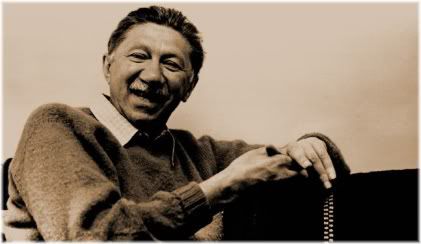
There is plenty of evidence to support the role of consciousness in shaping our personality, as there are many people who started life under extremely disadvantaged circumstances yet still managed to make a success of their life.
This idea of autonomy (the need to control and direct your own life) is something that was proposed by Maslow, who stated that we all have the choice to do things which will help us to realize our maximum potential in life. Whether or not we choose to do these things is ultimately determined by ourselves, our consciousness.
Carl Rogers (self concept)
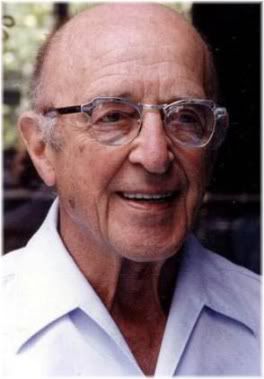
Another person who believed consciousness was important in shaping our personality was Carl Rogers, who placed great emphasis on the self-concept. The self concept is how a person perceives their personality, and exists in contrast to the ideal self which is how a person would like their personality to be.
If the self-concept and ideal self are very far apart, then a person is said to be in a state of incongruence. This can then lead to depression and anxiety disorders. Therefore, according to Rogers, one can achieve a state of balance and harmony in their life if they are able to align their self concept with their ideal self.
However, for some people, their ideal self may be so unrealistic (usually as a result of something they have seen or read which they believe they can achieve, e.g. magical abilities) that they never achieve their ideal state, and so spend the rest of their life in a fluctuating state of depression.
Reviewed – 30th March 2016
